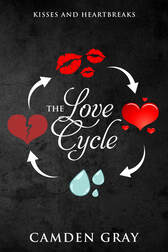|
Alchanati Campbell & Associates
Dear Reader,
The top of the top of the top, deaths and causes, hangryness, the World Cup, M&As, and drivers of returns. S&P 500: $2,779 Dow: $25,080 Nasdaq: $7,745 Oil: $65.01 10 Year: 2.92 The Market. Friday the 15th has been shaped by renewed fears of a trade war with China. The Trump Administration is set to impose a 25% tariff on $50 billion worth of tariffs on China. This is all because the White House believes China is taking advantage of the United States in regards to IP (intellectual property). 68% of these will come into effect on July 6th, with the remaining to undergo further evaluation and apply at a later date. Furthermore, the White House threatened more tariffs should China retaliate with tariffs of their own…which is exactly what the foreign power proceeded to do. Beijing announced their own $34 billion worth of tariffs which also be taking effect on July 6th. Perhaps of even greater note is the backtracking of the supposed agreements that took place last month when Chinese officials met with U.S. officials. At the time, China agreed to purchase more U.S. goods in an effort to reduce the trade deficit. All that went out the window as of today, and it looks like we are right back where we were over a month ago. Progress! Good thing we can still get our Fourth of July decorations purchases in. The rich are getting rich faster. Global wealth reached $201.9 trillion last year; 12% gain from 2016. Most of the wealth is held in Asia, but the US holds the largest number of people with more than $100 million. Time to Go Hiking. This past Wednesday, the Federal Reserve announced the second rate hike of 2018, raising the short term interest rate to 1.75-2%, up 25 basis points (1 BP = .01). In the announcement, Chairman of the Fed Jerome Powell said that economic growth was "rising" and that unemployment was "declining". Basically, Mr. Powell said the economy is doing great. He also reiterated the rational behind rising the rates in layman terms. He said something to the effect of "Raising rates back to more normal levels (they have been low for the past years to allow the economy to fully recover from the economic crisis of 2008) is the best way the Federal Reserve can ensure success for American businesses and households." Since the economy is doing so well, there are likely to be two more rate hikes in 2018, marking 4 for the year. Not everyone agrees with the Fed's decision here. Many people think that the consistent and planned rate hikes of 2018 are pushing the Treasury Yield Curve dangerously close to inversion, in which long term rates of return are less than short term rates of return. Historically speaking, an inverted yield curve is precursor to a recession. In 2007, we experienced inversion. As of Thursday, June 14th, the spread between the 10-Year Treasury yield and the 2-Year Treasury Yield is 35 basis points. This is eerily similar to the spread that came just before the burst of the dot com bubble at the start of this millennia and the Great Recession. John Authors of the Financial Times has gifted the world with a brilliant yet simple explanation of this situation, far greater than what I can offer you. Millions of deaths go unrecorded across the globe every year. Without an accurate measure of deaths and their causes, it is much harder to fight disease. If you do not know the cause of death, how can you prevent it? In Malaysia, a third of deaths are listed as “old age” which is not helping. Recording deaths properly and promptly can alert public officials to early signs of an influenza or other epidemic. What a week. Here’s a rundown of what happened this week in international politics.
I’m not me when I’m hangry. Your physical state can shape your emotions and cognition. When you’re hungry, your body releases hormones including cortisol and adrenaline, often associated with stress. Hunger can make you feel more tense, unpleasant, and primed for action. When you’re hungry, you may view things in a more negative light than when you’re not hungry. Hunger only becomes relevant in negative situations because hunger itself produces unpleasant feelings. The World Cup is here! As with any major tournaments there are predictions, betting, wins and losses, and tons of money swirling around. Where there is money, you can be sure to find banks. Many of the largest banks in the world are buying into the fun of predicting the outcome of the World Cup, however unlike individual fantasy brackets these banks are relying on fancy algorithms, AI, and other techniques that are normally used to pick stocks or offer balance to investor’s capital. Goldman Sach’s team decided to use artificial intelligence to try to predict the outcome, with Brazil earning the winning spot over Germany. Apparently Goldman Sach’s has predicted Brazil to win the last three world cups, so let’s hope they don’t use the same AI to predict winning stocks in their portfolios. USB (the Swiss Bank) decided to pursue a route that seems quite promising, considering they have the previous champions and one of the favorites winning again. That is Germany. They made their predictions by simulating over 10,000 tournaments and then count how many times each time won. !0,000 that’s a lot of tournaments. Hopefully they are right. Lastly, ING, the Dutch bank, decided to model teams based on total value. Each player would contribute to the total value based on their current worth in the global soccer economy. Spain came in first with a total value of $1.16 billion and tight on their heels is France with a combined value of $1.03 billion. However, despite these fantastic approaches to predicting the winners, there are those variables that can never be foreseen such as red cards in a final, injuries, lack of confidence, momentum, luck, and so many more factors that we cannot even comprehend. That is what makes sport so incredible to watch, and so risky to bet on. For those that don’t play the odds, it is still fun to sit back with a cold one and enjoy the spectacle! Emotional intelligence. Defined as recognizing, understanding, and managing our own emotions and influencing the emotions of others. Here are 10 qualities that comprise the emotionally intelligent person: empathy, self-awareness, curiosity, analytical mind, belief, needs and wants, passionate, optimistic, adaptability, and desire to help others succeed and the desire to succeed for yourself. Do you have these qualities? Drivers of returns. The factors that determine just how successful an investment portfolio is in terms of net, inflation-adjusted returns include: security selection (stock picking), costs and expenses, asset allocation, when you start investing and when you start withdrawing for retirement, longevity of your life, and behavior and discipline. Keep Climbing, The Alchanati Campbell & Associates Team |
AuthorWHAT'S UP FRIDAY? is a weekly newsletter that will give you a summary of "What's up?" on Wall Street, in the US and around the World written by The Alchanati Campbell and Associates Team. What makes us unique is we focus on long-term knowledge; knowledge that will still be useful to you 10 years from now. Archives
July 2020
Categories |
|
Phone: (323)-553-2411
|
|
All information stated does not represent The ACA Foundation's opinions and we do not claim responsibility for most of the content. This website does not provide individual or customized legal, tax, accounting, or investment advise.
All Rights Reserved
All Rights Reserved
 RSS Feed
RSS Feed

